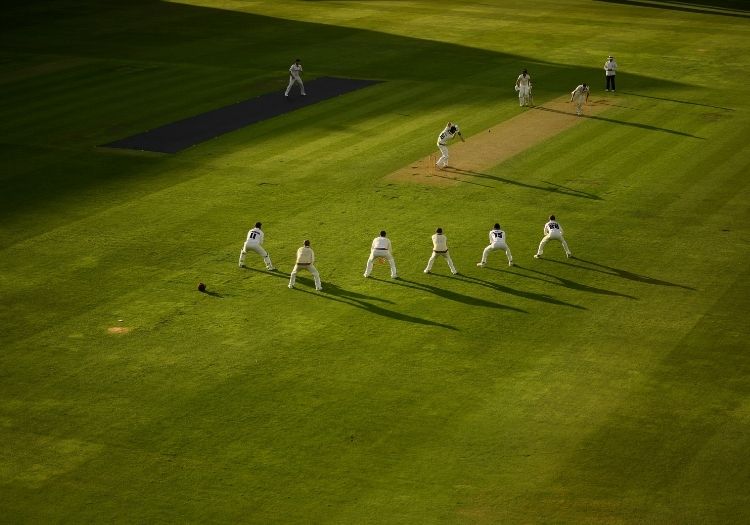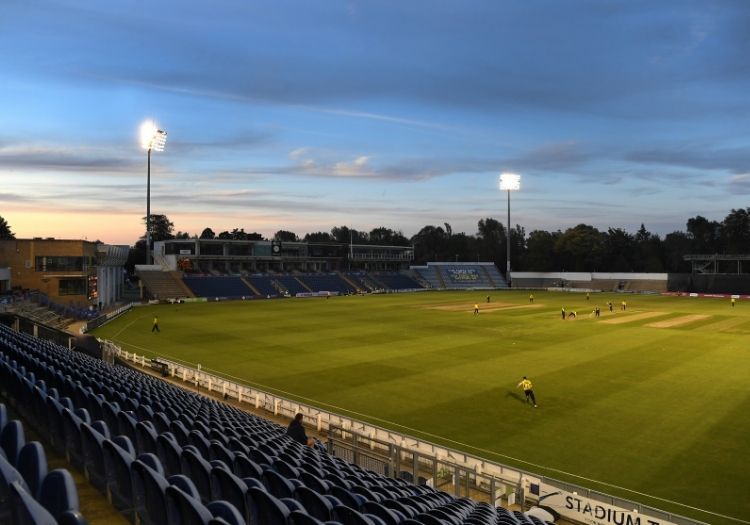On the back of the survey, an education programme is being put in place, which will be delivered to all professional players across the English game, as well as those involved at the ECB and PCA, beginning in March

A survey conducted by the Professional Cricketers’ Association has revealed that at least 23 players have experienced racism in the professional game.
The information was uncovered in research carried out by the PCA looking into encounters with racial discrimination, with all professional cricketers – male and female – in England, including people who have left the game in the last two years and academy players in professional setups, invited to take part.
The survey was sent to close to 600 PCA members, and garnered responses from 173; 24 of those identified as black, Asian and minority ethnic (BAME).
Among the players who had experienced or witnessed racism, 45 per cent of these instances were said to be from another player, while 16 per cent pointed to abuse on social media and 23 per cent to incidents with spectators. Ten per cent related to coaches, three per cent to support staff, two per cent to county staff members and one per cent to a match official.
Of the players who had experienced racism, 12 identified as BAME, 10 of whom are current players – equating to 38 per cent of BAME cricketers in the professional game. Eleven identified as white or Caucasian.
Asked about the perceived intent in each situation, 62 per cent believed the abuse had been disguised as banter. PCA lead personal development manager Charlie Mulraine explained that banter had been offered as an option “because it’s a word that is often understood in the dressing room” and that “it’s a term that’s often used to disguise something else”.
On the same issue, in 25 per cent of cases players were unsure of the intent behind their experiences, while 13 per cent stated hurt as the intention behind the actions.
However, the results also showed that 92 per cent of players believe their clubs produce an environment that allows all cricketers to flourish. Only a single respondent strongly disagreed with that statement.
On the back of the survey, an education programme is being put in place, which will be delivered to all professional players across the English game, as well as those involved at the ECB and PCA, beginning in March.

An education programme has been set up following a PCA survey
It was a central recommendation of the Equality, Diversity and Inclusion working group established in 2020 by the PCA, who have partnered with consultancy firm EW Group to develop the education programme. In the survey, 70 per cent of responses indicated that education “would have a positive impact on players’ attitudes towards diversity and inclusion within the professional game”.
The programme will centre on issues of cultural differences and unconscious bias, focusing on the context of professional cricket.
Neil Snowball, the ECB managing director of county cricket, explained: “The results of the PCA survey, like too many of the stories that we’ve heard over the last year, tell us that there’s still a way to go and more for us all to do.
“That’s why we’re so keen to work jointly with the PCA on this education programme, initially focusing on players and support staff, but then working with our colleagues in the first-class counties to adapt that and run those sessions for other people in and around the game – right across the network, administrators and officials as well.
“We want to make this an absolute priority for the ECB, and that education programme is part of a wider range of initiatives that we’re accelerating and rolling out.”
Sussex chief executive Rob Andrew, who also took part in a briefing to journalists as a member of the Professional Game Group, added: “We need to be part of this as first-class counties, working with our partners and making sure that our employees understand the issues more deeply and feel secure that the game is there to protect them.
“And [we need to] make sure that actually the dressing rooms around our counties, and with our academies as well and our young players coming into this environment, can feel safe and confident that any of these issues, which we can’t accept in the sport, will be taken incredibly seriously and managed properly by those of us who are charged with making sure that this happens.”
"The game has an issue we need to address"
As well as the educational programme, several other initiatives are in the works, including an anti-discrimination code to be added to the ECB’s regulations ahead of the beginning of the 2021 season.
One standout statistic from the survey was a suggestion that 20 per cent of experiences of racism were not reported because players were unsure of the procedure for doing so. Likewise, 33 per cent went unreported because those on the end of the abuse were uncertain of the severity of what they had experienced. In 10 per cent of scenarios, victims were afraid of the consequences, 22 per cent said they didn’t want to cause a scene, while 15 per cent didn’t know what to say.
To help correct that issue, Snowball added: “We’re also putting in place new ways for incidents to be reported. One is the development of an anonymous phoneline. Also, dedicated emails, so that people feel that it’s easier to convey and communicate any discriminatory behaviour at all.
“We’ll also be working with the county boards and other stakeholders across the recreational game to make sure that they are clear around reporting and the structure on guidance as to how they can hold people to account if they witness any breaches.
“The final thing is a forum for race in cricket. This is giving people a safe space so that they can share their experiences and ensure that they’re listened to. We’ve been listening over the last 12 months and we’ve heard a lot of stories, but there hasn’t been that safe space for people to come forward.”
Roland Butcher: "We need ACE Programme to go on for 20, 30, 40 years"
An independent commission for equality in the sport is also being launched shortly to assess evidence of inequalities and discrimination within the game.
PCA chief executive Rob Lynch said: “The game has an issue we need to address, as does the PCA. We are a small organisation, but we need to work at our own diversity and look at ourselves. That’s not something that can happen overnight; the education that we have identified from this survey and we will deliver is going to firstly be in that professional environment.
“But again, that’s a starting place and something where we can build from and expand. Everyone appreciates that new processes for recruitment and roles within the game have and are now in place and that should continue. We can’t change yesterday, but we can look forward to tomorrow. I think now we’re much more aware of the issues.
“We’re not here to try to not recognise that we’ve got some issues that we need to try and address. That’s why we’re addressing them; we believe that the best way of doing that is education. We are where we are, and we’re doing something about it. That’s absolutely the right thing to do.”